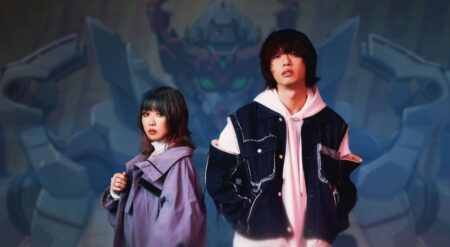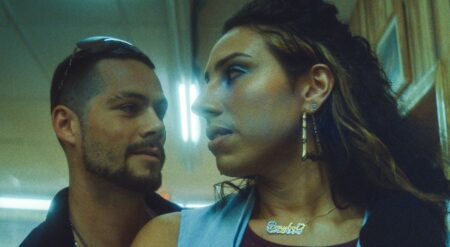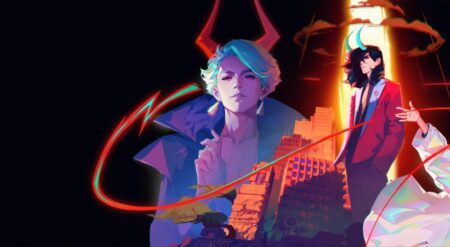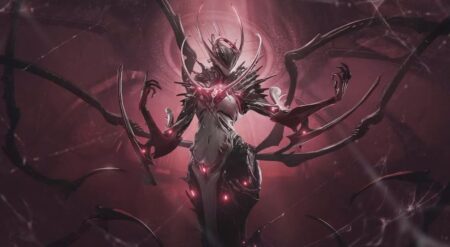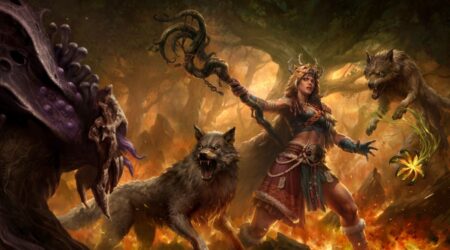
.Self is a brand new ComiXology Original series written by Christopher Sebela, artist Cara McGee, colorist Rebecca Nalty, and letterer Aditya Bidikar. In a near future, new technologies allow humans to upload their every memory and emotion to a cloud that can be downloaded into a blank body after your death to let your family have closure. But what if that server was hacked? What chaos might ensue?
Author Christopher Sebela joined But Why Tho? to discuss .Self, what makes the series tick, and whether trust is worthwhile or just a trap. The following interview is lightly edited for clarity and brevity. The full interview with Christopher Sebela can be heard above or on the But Why Tho? Podcast feed.
BUT WHY THO?: Where did the idea for .Self come from, and what influence or experiences helped shape it?
CHRISTOPHER SEBELA: A lot of books I know precisely where I get the idea, this one I don’t. I just remember writing down the phrase “downloadable people.” It’s not like the idea of backing humans up onto a hard drive is 100 percent new, but I was thinking about that concept, and I thought, “well, what if somebody stole your file and then put it on BitTorrent? What would happen if anybody had access to it?” And it just seemed like a recipe for absolute chaos. This was just one of those things where I couldn’t tell you why it was so compelling to me. It was just an idea I kept chasing, and eventually, it turned into a book.
BUT WHY THO?: There have certainly been stories about people who have been unknowingly cloned, and they’re running into other versions of themselves. What sets your story apart from other stories with similar premises?
SEBLEA: The fact that it’s me telling it, and it’s Cara, and it’s Rebecca, and Aditya telling it—execution alone it’s going to be different. .Self is a lot more… causal. I’ve been calling it low-fi sci-fi. It’s very intimate and casual. We’re not so interested in the hard science of how it all works. It’s more of a feelings-based sci-fi approach that we’re doing. I tried to avoid going to see Orphan Black or stuff along those lines, so I couldn’t say precisely how we’re different. I just think that us, as a team—we naturally bring something different to the table.
BUT WHY THO?: You had mentioned that the tone you’re trying to take is a little more “levity.” Waking up and finding out that you’re in this absurd situation, as Nat does, this could be something that gets displayed as an absolutely terrifying experience. How do you balance the demonstrating of distress while offering that levity?
SEBELA: I think it’s just where a lot of my interests are drawn. I can come up with a lot of grimdark scenarios, but I don’t want to spend months and months wallowing in darkness. I want things to be fun. I don’t want to subject readers to a lot of trauma… I want it to be that you can enjoy yourself while you’re reading it. It just felt like more of a fun-causal jumping-off point. I definitely could have taken .Self in a lot of darker directions, but I think the fact that we were working on this during the pandemic—things were pretty grim already.
BUT WHY THO?: So I’m reading this comic, and something that I notice pretty astutely is that there’s a lot of friction between Nat and her husband, as opposed to having a relationship that’s like “they’re a team, and they’re going to work through this thing together.” Is there a particular reason why that dynamic is how you wanted to establish the first two characters that we really meet?
SEBELA: I think it’s this idea that people project this perfect life to the outside world, and even to themselves. “Everything’s going great; I have A, B, and C. I have everything I’ve ever wanted.” And nobody’s life is picture perfect. Somewhere in the process, unless you’re a very lucky person, you’re going to have these areas in your life that are suffering while others are on the upswing. I was just interested in this idea that Nat, spending her whole life trying to reach this cozy ideal that she has set in her mind of “here’s what I need to be comfortable—to live a life where I don’t have to worry all the time.” And she’s got it, and it’s not what she dreamed of. There’s still problems. It felt natural to me. Sometimes you’re in a relationship; you have periods where you don’t get along for a while. Whatever in my brain runs towards stuff that really appealed to it.
BUT WHY THO?: Life’s not perfect, so why should comics be? One of the main themes that seemed pretty apparent in this first issue was about trust. Can you trust yourself? Can you trust other people? What makes trust an interesting theme, and how would you hope that readers come away from the series feeling about trust?
SEBELA: Again, it comes back to this idea—you’ve reached this level where you think you know how the world works, and you know how your life works. You feel like you have a handle on everything. And then it’s the exact moment where the universe smacks you upside the head. You don’t run any of this. A lot of this is tied into the idea of “how reliable is your positive mental attitude and how much of its is a front that you put up?” The whole book is touching on this notion that you sort of make an agreement with the world that I will do A, B, and C, and I will be rewarded in E, F, and G, manner of ways. And all of the things you work hard for can be taken away through no fault of your own. How do you trust anything, really, when it’s all so capable of falling apart in your hands?
As far as readers: I try not to dictate what opinion readers come away with. I think as we get deeper into the book, it will definitely open up more.
BUT WHY THO?: Would you say that trust is a valuable thing to have or that it’s overrated?
SEBELA: I think trust is a great thing to have; it’s just also a very delicate thing. Once you have it, it’s strong. But also… one little thing can destroy this powerhouse. I love to give my trust to something and have it rewarded, but I also recognize that the world is a big machine and doesn’t really care. A lot of the book is playing with the idea of “how solid is your life really?” and how quickly your happiness can be reversed.
BUT WHY THO?: What else might you want to share about .Self?
SEBELA: Cara is somebody I really wanted to work with for a long time, and a big reason I was excited about getting her on this book was that I had no idea what the book would look like with her drawing it. It’s rare that you are a spectator to your own work, but I was just super giddy every time new pages came in. And this is a book that I didn’t really know what it was about until I was about halfway through writing it. I rarely set out with themes and a path to achieve them. It gives me a lot of comfort having this book as something to show this period of time and marks a lot of my feelings that I was feeling over the last year and a half or so. Hopefully, people can relate on some level.
.Self is available now on Kindle devices through Kindle and ComiXology. Listen to the full interview with Christopher Sebela on the But Why Tho? Podcast.

